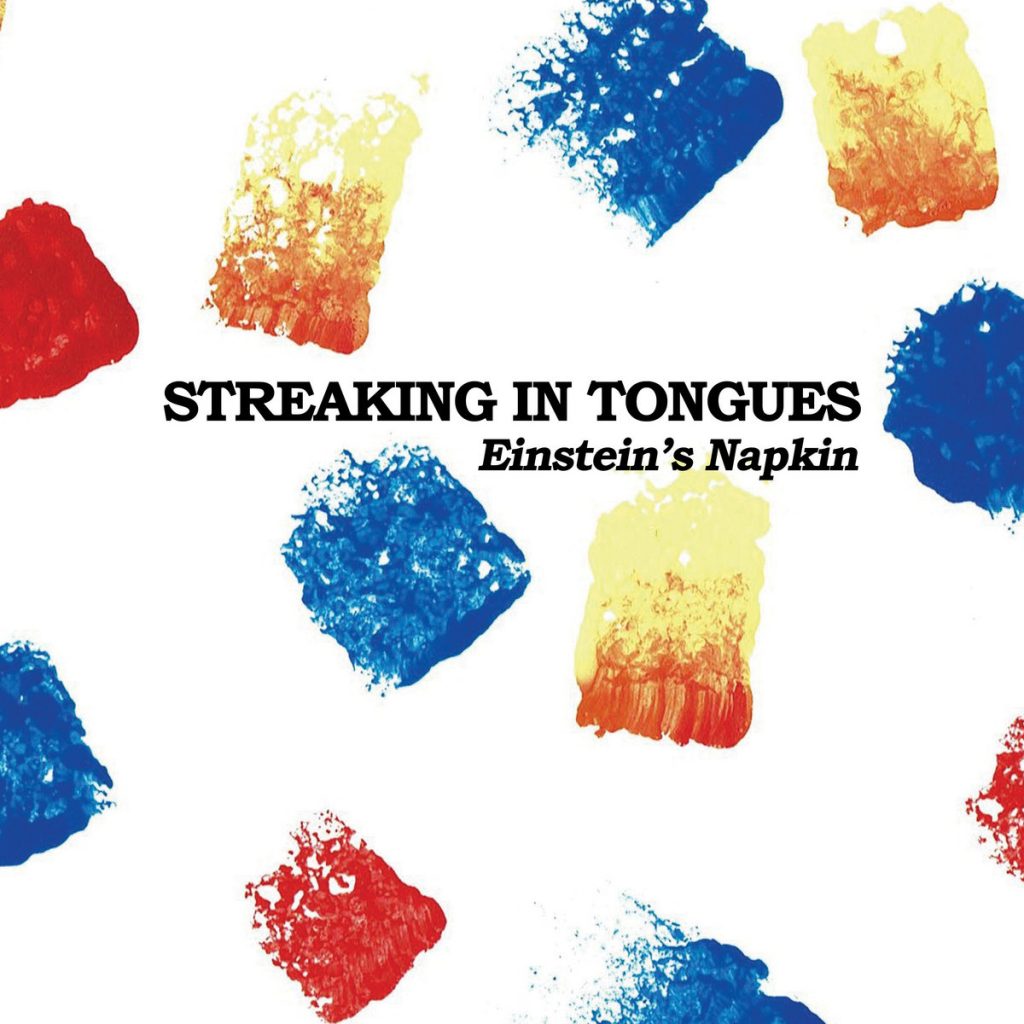Ronnie Ferguson penned each of the fifteen songs included on Streaking in Tongues’ Einstein’s Napkin. However, the chemistry he shares with his son and musical partner Elliott Ferguson is the essential ingredient that gives these offbeat compositions durability and distinction.
The Marquette, Michigan-based pair produced, recorded and mixed the collection themselves. The level of intimacy resulting from this hands-on approach is another strength. Each of the album’s fifteen recordings is similar to brief yet lively dialogues with the listener alone, and the unity underlying the track listing underlines the clarity of their musical vision. Einstein’s Napkin, inspired by the poetry of Marty Achatz, sounds like the Fergusons had a firm grip on what they wanted the end result to sound like and never struggled to achieve their aims.
There’s an exact yet relaxed confidence pervading the songs. Even songs with a near-glacial gait such as “Lumbering Along Bluff Creek” radiate a clear sense of purpose. The guitar sound during this track and later cuts boasts a remarkable tactile quality and gives the clearly defined melodies an indelible quality. “Love and Need” has the same melodic strengths. The gentle swing of the song’s melody is another potent example of the appeal these instrumentals harbor. Exceptional yet breathtakingly direct guitar playing is one of the crucial ingredients flavoring Einstein’s Napkin and, despite its short duration, “Love and Need” gives us one of the album’s most memorable performances.
The slow unfolding of “Triangle Stacked on Triangle” has an almost hypnotic effect on listeners. Sparse percussion accentuates the track with a steady yet airy pulse that underpins the other instrumental contributions. Many will be especially taken by how Patrick Booth’s saxophone playing and the keyboards work together during this tune. “The Grief of the Answer” will rank for many as one of Einstein’s Napkin’s strongest tracks. Ronnie Ferguson composes a memorable guitar hook for the instrumental that keeps you listening, and it riffs on a distinctly different vibe than many of its predecessors. Light indie rock influences creep into the arrangement with great results.
Another of the album’s best melodies arrives with “The Life Span of a Cricket. The guitar playing achieves a poetic aura befitting a song cycle inspired by written poetry while never risking obscurity. It connects with a single play. There’s a quiet, settled mood pervading the performance. “A Black Hole with Legs” is quite a contrast. This is another example of indie rock influences finding their way into Streaking in Tongues’ musical makeup, and the darker mood of the composition remains within the band’s wheelhouse despite any differences in tone.
Another track where the music’s debt to poetry shines bright is “Timber Wolf with Hiccups”. The music crystallizes a scene for listeners with minimal adornment, and the atmospherics are palpable without overwhelming you. The band’s penchant for enchanting melodies reaches another apex with this song. There is an experimental tinge coloring these fifteen tracks, and you won’t find a dud among them. However, some are naturally more successful than others. Streaking in Tongues’ Einstein’s Napkin is an album that demands multiple listens before you fully grasp the intent behind individual cuts and the overall work, but it’s well worth each pass.
Heather Savage

